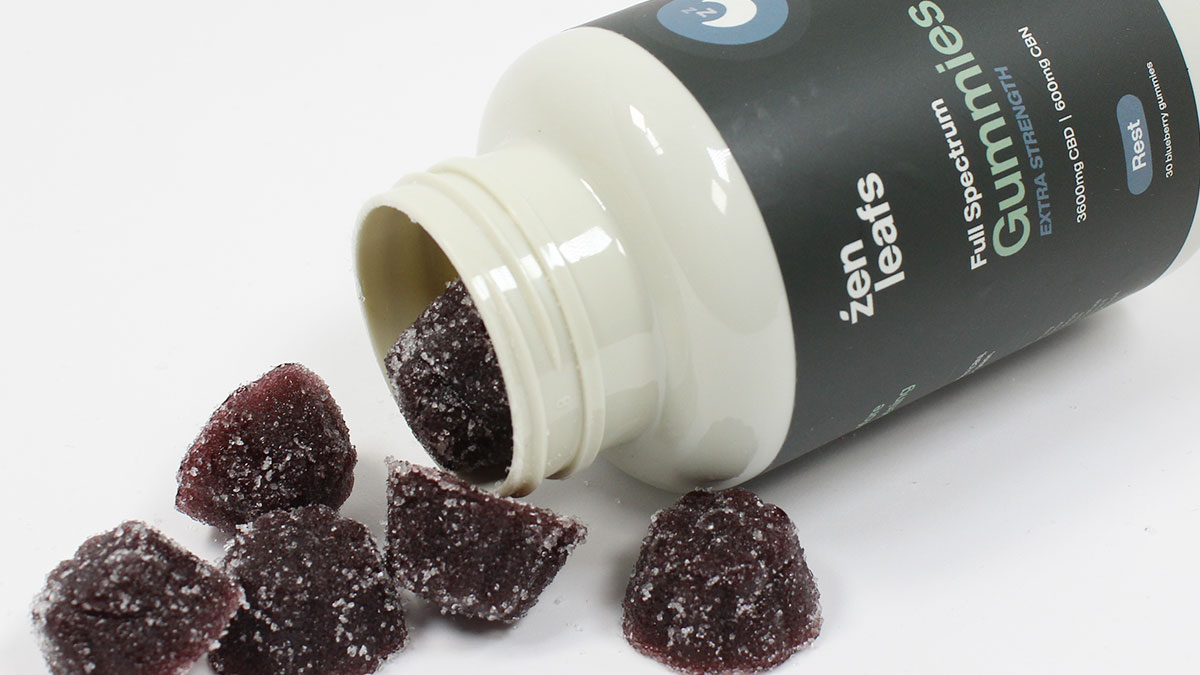Gastrointestinal (GI) disorders affect millions of people worldwide, causing discomfort, pain, and disruptions to daily life. Whether it’s irritable bowel syndrome (IBS), inflammatory bowel disease (IBD), or acid reflux, managing symptoms can be a frustrating challenge. In recent years, cannabidiol (CBD) has emerged as a potential natural remedy for digestive issues, with claims of reducing inflammation, soothing gut discomfort, and improving overall gut health. But what does the science say? Is CBD truly a game-changer for gastrointestinal disorders, or is it just another wellness trend? Let’s dive into the research and explore the potential benefits of CBD for gut health.
The Endocannabinoid System and Gut Health
To understand how CBD may impact the digestive system, we first need to explore the endocannabinoid system (ECS). This complex network of receptors, enzymes, and endocannabinoids plays a vital role in regulating various bodily functions, including digestion, inflammation, and gut motility.
The ECS consists of two main cannabinoid receptors:
- CB1 receptors: Primarily found in the brain and nervous system but also present in the gut, influence gut motility and pain perception.
- CB2 receptors: Located mainly in immune cells, are linked to reducing inflammation, which is a key factor in many digestive disorders.
CBD interacts with the ECS indirectly by modulating these receptors and influencing neurotransmitters and immune responses. This has led scientists to explore its potential in treating GI disorders.
Common Gastrointestinal Disorders and Their Symptoms
Irritable Bowel Syndrome (IBS)
A functional disorder affecting the large intestine, IBS causes symptoms like cramping, bloating, diarrhea, constipation, and abdominal pain. The exact cause isn’t fully understood, but stress, diet, and gut microbiome imbalances play a significant role.
Inflammatory Bowel Disease (IBD)
This umbrella term includes Crohn’s disease and ulcerative colitis—both of which involve chronic inflammation of the digestive tract. Symptoms can be severe and include persistent diarrhea, rectal bleeding, weight loss, and extreme fatigue.
Acid Reflux & GERD (Gastroesophageal Reflux Disease)
Acid reflux occurs when stomach acid flows back into the esophagus, leading to heartburn, regurgitation, and irritation. When it becomes chronic, it turns into GERD, which can lead to complications like esophageal damage.
Nausea & Vomiting
Whether due to motion sickness, chemotherapy, or digestive disorders, nausea can be a debilitating symptom. Traditional medications exist, but many come with side effects that some patients seek to avoid.
Leaky Gut Syndrome & Gut Dysbiosis
Although not universally recognized in traditional medicine, these conditions involve a compromised intestinal barrier, which may lead to increased gut permeability and chronic inflammation. Many believe gut dysbiosis (an imbalance in gut bacteria) plays a role in digestive health.

How CBD May Help with Gastrointestinal Disorders
- Reducing Gut Inflammation: Studies suggest that CBD may reduce inflammatory responses by modulating CB2 receptors and suppressing pro-inflammatory cytokines.
- Managing Abdominal Pain: Since the gut has a direct connection with the nervous system, pain signals are often intensified. CBD interacts with pain receptors and serotonin pathways, which may help alleviate abdominal discomfort and cramps.
- Regulating Gut Motility: Some research suggests that CBD may help regulate intestinal motility, improving symptoms of both diarrhea and constipation.
- Reducing Stress and Anxiety: The gut-brain connection is powerful, and stress is a known trigger for many GI disorders. CBD’s ability to promote relaxation and reduce anxiety may indirectly improve gut health.
- Balancing the Gut Microbiome: Although research is still in its early stages, some studies suggest that cannabinoids may play a role in maintaining a healthy gut microbiome.
What the Science Says: Research & Studies
- A 2020 review published in Cannabis and Cannabinoid Research: Found that cannabinoids, including CBD, have anti-inflammatory effects in the gut, making them promising for IBD treatment.
- A study in Phytotherapy Research (2019): Reported that CBD reduced intestinal inflammation and oxidative stress in animal models, suggesting potential benefits for colitis patients.
- In a small 2018 clinical trial: CBD-rich cannabis extracts improved IBD symptoms in patients, though more research is needed.
- Research published in Neurogastroenterology & Motility: Indicated that CBD may modulate gut motility, which could be beneficial for IBS sufferers.
How to Use CBD for Gastrointestinal Disorders
Choose the Right Form
- CBD Oil/Tinctures: CBD oil tinctures are fast-acting and can be taken sublingually or mixed into food.
- Capsules & Edibles: Offer precise dosing but take longer to take effect.
- Topicals: CBD creams are less relevant for GI disorders but may help with localized pain.
Start with a Low Dose
Since everyone’s endocannabinoid system is unique: Start with a low dose (e.g., 10-20mg per day) and gradually increase based on your response.
Consider Full-Spectrum vs. Isolate
- Full-spectrum CBD: Contains additional cannabinoids and terpenes, which may enhance effects (entourage effect).
- CBD isolate: Pure cannabidiol, with no THC or other compounds.
Consult a Doctor
Before using CBD: Especially if you’re on medications for a GI condition, consult a healthcare provider to avoid potential interactions.
Potential Risks and Side Effects
- Dry mouth
- Drowsiness or fatigue
- Changes in appetite
- Drug interactions (especially with blood thinners or acid-reducing medications)

Conclusion
The science behind CBD and gastrointestinal disorders is still evolving, but early research is promising. From reducing gut inflammation to easing pain and regulating digestion, CBD holds potential as a natural option for managing GI conditions. However, it’s not a one-size-fits-all solution, and consulting a healthcare professional is crucial before incorporating CBD into your routine.
As research continues, we may gain a deeper understanding of how cannabinoids can support digestive health. Until then, staying informed and experimenting cautiously with CBD may help those struggling with gut-related issues find relief.
Take control of your health with the aid of using CBD daily. Shop online CBDMagic for Canada’s best organic CBD oil.
